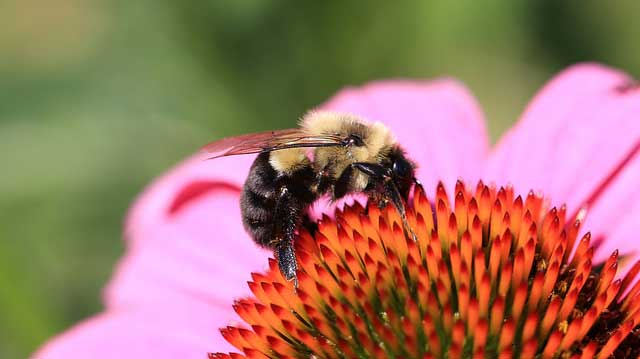
Source: NPR
A group of scientists from the UK examined the effects of harmful pesticides on bumblebee queens and found that they are equally as endangered as honeybees.
Traces of the harmful pesticides, known as neonics, end up in pollen, which is then consumed by bees.
Through an experiment, scientists found that bumblebees that are exposed to the pesticide are 26% less likely to lay eggs, compared to bees that were no exposed, as reported by NPR.
“Without the queen laying eggs, there is no colony,” says Nigel Raine, one of the lead scientists.
Learn more about the study published in the journal Nature Ecology and Evolution.
Read full story at: NPR
